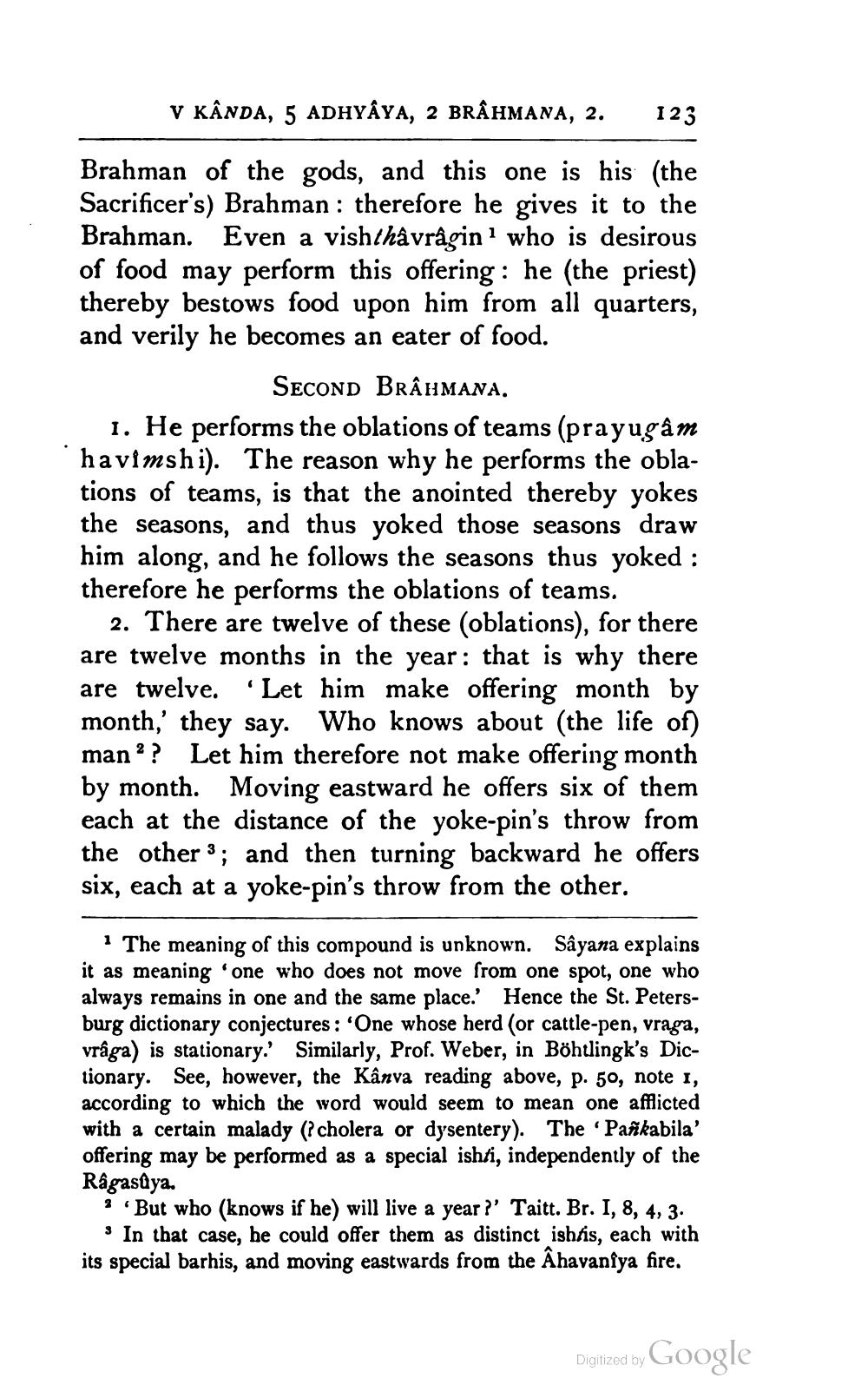________________
V KÂnda, 5 ADHYAYA, 2 BRÂHMANA, 2.
123
Brahman of the gods, and this one is his (the Sacrificer's) Brahman : therefore he gives it to the Brahman. Even a vishthâvragin' who is desirous of food may perform this offering : he (the priest) thereby bestows food upon him from all quarters, and verily he becomes an eater of food.
SECOND BRAHMANA. 1. He performs the oblations of teams (prayugâm havimshi). The reason why he performs the oblations of teams, is that the anointed thereby yokes the seasons, and thus yoked those seasons draw him along, and he follows the seasons thus yoked : therefore he performs the oblations of teams.
2. There are twelve of these (oblations), for there are twelve months in the year: that is why there are twelve. “Let him make offering month by month,' they say. Who knows about (the life of) man? Let him therefore not make offering month by month. Moving eastward he offers six of them each at the distance of the yoke-pin's throw from the other 3; and then turning backward he offers six, each at a yoke-pin's throw from the other.
The meaning of this compound is unknown. Sâyana explains it as meaning one who does not move from one spot, one who always remains in one and the same place. Hence the St. Petersburg dictionary conjectures: 'One whose herd (or cattle-pen, vraga, vrâga) is stationary.' Similarly, Prof. Weber, in Böhulingk's Dictionary. See, however, the Kânva reading above, p. 50, note 1, according to which the word would seem to mean one afflicted with a certain malady (cholera or dysentery). The 'Pankabila' offering may be performed as a special ishti, independently of the Râgasûya. 3"But who (knows if he) will live a year?' Taitt. Br. I, 8, 4, 3.
In that case, he could offer them as distinct ishhis, each with its special barhis, and moving eastwards from the Ahavaniya fire.
Digitized by Google




